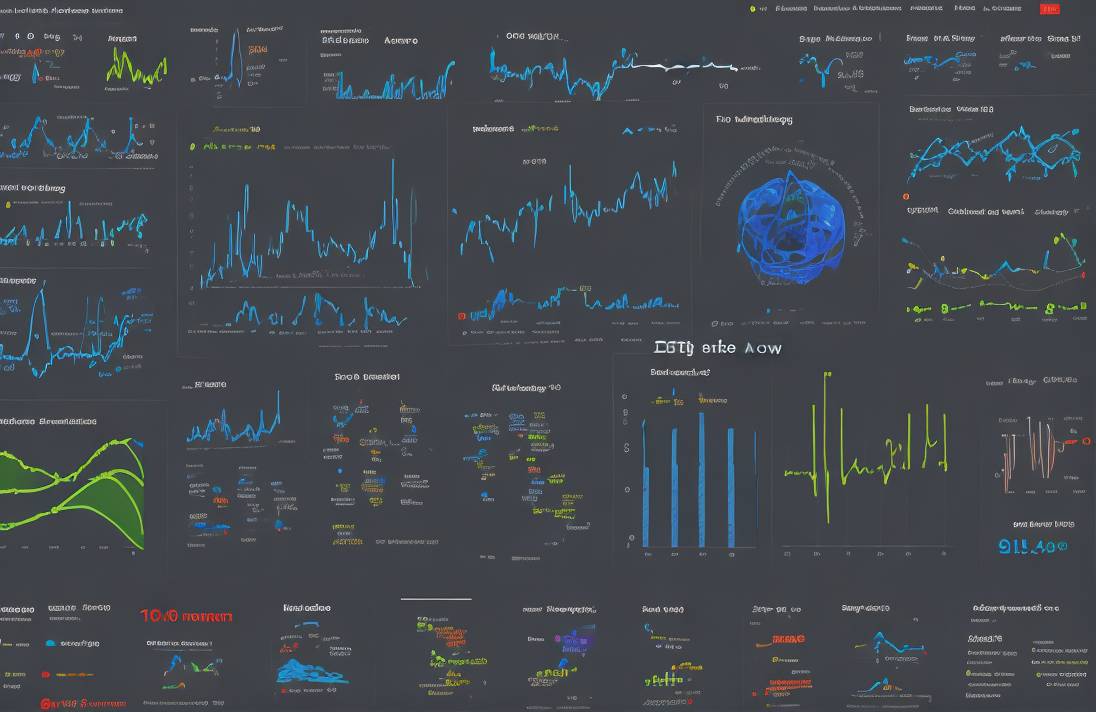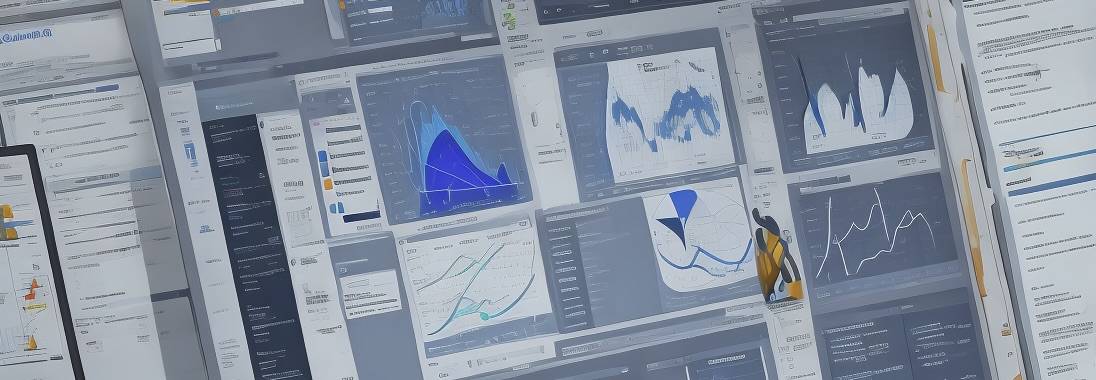Creating AI and Data Analytics

- August 23, 2023
- allix
- AI in Business
Data has become the lifeblood that fuels growth and innovation. From customer behavior to market trends, organizations are inundated with vast amounts of information that hold the key to unlocking strategic insights. However, the challenge lies in deciphering this data and transforming it into actionable intelligence. This is where artificial intelligence (AI) and data analytics become key tools that revolutionize how companies work and how they make decisions.
The convergence of AI and data analytics marks a paradigm shift in the business world. Traditional data analysis methods, while effective, often fall short when dealing with the complexity and scale of contemporary data sources. Enter AI, equipped with the ability to process and analyze colossal datasets in real time. This fusion not only enhances the speed and accuracy of data analysis but also uncovers hidden patterns, correlations, and trends that would otherwise remain buried in the data deluge.
AI augments the capabilities of data analytics by introducing machine learning algorithms that learn from the data and adapt over time. These algorithms, ranging from decision trees to neural networks, can recognize intricate relationships within the data, enabling businesses to identify insights that were previously elusive. Consequently, the insights derived from this amalgamation empower businesses to make informed decisions with a level of precision and foresight that was once deemed unattainable.
As businesses transition into a data-driven era, the importance of AI-driven data analytics becomes even more pronounced. With the rise of technologies such as the Internet of Things (IoT) and the exponential growth of digital interactions, the volume of data generated daily is staggering. Traditional data analysis methods struggle to keep up with this data deluge, often leading to missed opportunities and delayed insights.
From Data to Insights
At the core of the AI and data analytics synergy lies the process of transforming raw data into actionable insights. This begins with data collection, where businesses gather information from various sources, such as customer interactions, sales transactions, social media, and IoT devices. The amassed data, often in colossal volumes, presents both an opportunity and a challenge. While it harbors valuable insights, its sheer magnitude necessitates advanced tools for processing and analysis.
This is where AI enters leveraging techniques such as natural language processing, deep learning, and predictive analytics. These AI-powered methods help in uncovering patterns, detecting anomalies, and generating predictive models. For instance, AI algorithms can predict customer behavior, identify emerging market trends, and even anticipate potential supply chain disruptions.
The fusion of AI and data analytics introduces the concept of “Big Data,” where organizations leverage the power of AI to process and analyze massive datasets that were previously insurmountable. The era of Big Data allows businesses to gain insights from data sources they may not have considered before, leading to a more holistic understanding of their operations and the broader market landscape.
Enhancing Decision-Making with AI-Infused Insights
The ultimate goal of AI and data analytics is to empower businesses to make smarter decisions. These decisions span a broad spectrum, from refining marketing strategies to optimizing supply chains and enhancing customer experiences. The insights unearthed by AI help organizations understand their operations on a granular level and identify areas for improvement.
In marketing, AI-powered analytics enables businesses to tailor campaigns to specific customer segments based on their preferences and behavior. This level of personalization enhances customer engagement and increases the likelihood of conversions. Similarly, in supply chain management, AI-driven predictive analytics can anticipate demand fluctuations, optimize inventory levels, and even suggest the most efficient distribution routes.
AI and data analytics play a pivotal role in risk management. By analyzing historical data and external factors, AI algorithms can predict potential risks and vulnerabilities. This proactive approach empowers businesses to take preemptive measures, safeguarding their operations against potential disruptions.
With AI-driven insights, businesses can make data-informed decisions that align with their strategic goals. Whether it’s optimizing resource allocation, predicting market trends, or understanding customer preferences, AI empowers businesses to navigate an increasingly complex and competitive landscape.
Realizing the Potential of AI and Data Analytics
To illustrate the transformative power of AI and data analytics, let’s explore a couple of project examples from different industries.
In the retail industry, predicting consumer demand is paramount to optimize inventory management and meet customer expectations. AI-powered data analytics can analyze historical sales data, seasonal patterns, and external factors such as economic indicators to forecast demand accurately. By leveraging machine learning algorithms, retailers can adjust their inventory levels proactively, reducing excess stock and minimizing stockouts. This leads to cost savings, improved customer satisfaction, and enhanced operational efficiency.
In healthcare, AI-driven data analytics is revolutionizing patient care. By analyzing patient medical records, genetic information, and treatment outcomes, AI algorithms can identify patterns that lead to personalized treatment recommendations. This approach, known as precision medicine, allows healthcare professionals to tailor treatments to each patient’s unique genetic and medical profile. The result is more effective treatments, reducing trial and error, and ultimately, improved patient outcomes.
Challenges and Opportunities

While the marriage of AI and data analytics holds immense promise, it’s not without its challenges. One key hurdle is ensuring data quality and integrity. Accurate insights depend on the quality of input data, and organizations must implement robust data governance strategies to ensure that the data being analyzed is accurate, complete, and relevant.
Another challenge is the ethical use of AI and data analytics. As businesses rely more on AI-generated insights, questions of privacy, bias, and transparency come to the forefront. Striking a balance between leveraging the power of AI and upholding ethical considerations is essential for building trust among customers and stakeholders.
The technical complexity of AI can pose challenges, particularly for businesses without a strong technical background. Collaborations between data scientists, analysts, and business decision-makers are crucial to ensure that AI-driven insights are effectively interpreted and translated into actionable strategies.
Despite these challenges, the opportunities presented by AI-powered data analytics are transformative. Businesses that successfully harness these capabilities can gain a competitive edge, anticipate market shifts, optimize operations, and create tailored experiences for their customers.
Categories
- AI Education (39)
- AI in Business (65)
- AI Projects (87)
- Research (107)
- Uncategorized (5)
Other posts
- Medical Treatment in Brazil: Advanced Healthcare, Skilled Specialists, and Patient-Focused Care
- Dental Treatment in China: Modern Technology, Skilled Dentists, and Comprehensive Care for International Patients
- Plastic Surgery in China: Advanced Aesthetic Medicine Supported by Precision, Innovation, and Skilled Specialists
- Ophthalmology in China: Advanced Eye Care Guided by Innovation, Expertise, and Patient-Focused Treatment
- Finding Care, Calm, and Confidence: Why Patients Are Looking Toward Beroun in the Czech Republic
- Choosing Health, Energy, and a New Future: Exploring Gastric Bypass in Diyarbakır, Turkey
- When Facial Hair Tells Your Story: Considering a Beard Transplant in Phuket, Thailand
- When Prevention Becomes Power: Understanding Liver Cirrhosis Risk and Modern Screening Approaches in Spain
- When the Abdomen Signals Something Serious: Understanding Abdominal Aortic Aneurysm and Getting Expert Evaluation in Islamabad
- When Back Pain Becomes More Than “Just Pain”: Understanding the Need for Microdiscectomy
Newsletter
Get regular updates on data science, artificial intelligence, machine



